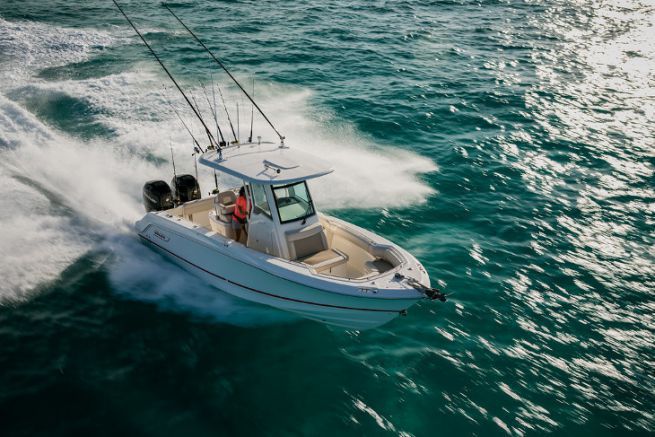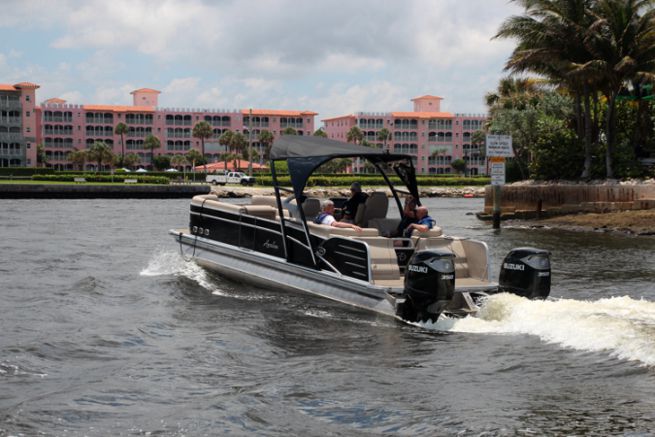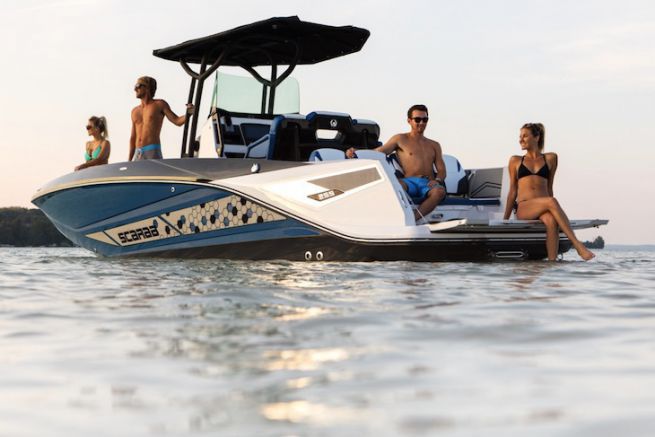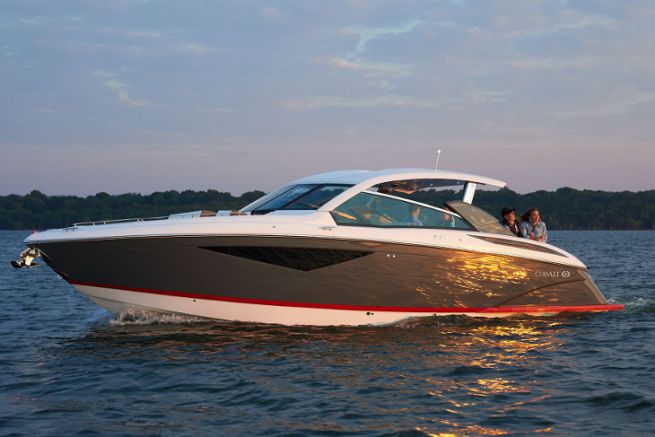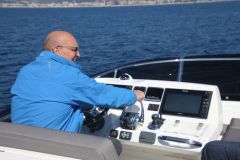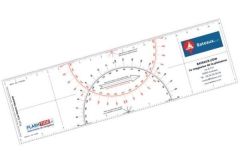Fast and brutal taxes
The presence of pleasure boats on the list of products manufactured in the United States subject to customs duties by the European Union, in retaliation for the US taxes on aluminum and steel, had been known for several months. However, the entry into force of the measure surprised the marine industry. "Everyone was shocked by the speed of the implementation. We didn't think there would be a tax until July 1," said Katie Hansen, European manager for the Boston Whaler brand in Brunswick. "Taxes of this magnitude are always brutal, because they are significant in value and quick, both for us and for the buyers," agrees Jean-Paul Chapeleau, brand manager for Glastron and Well Craft, within the Bénéteau Group.

100% US boat dealerships in danger
Boston Whaler, the only brand of the American group that makes all its boats in the United States, is the most affected by the new tariffs. "We invoice all our boats directly in dollars to our dealers in Europe. Some of them only sell boats imported from the United States. Those could be at risk," says Katie Hansen.
The evolution of the Bénéteau Group's network of American brands allows Jean-Paul Chapeleau to be more reassuring about the durability of the dealers. "When we took over, we relied on the network that was already in place, notably Four Winns. Since then, we have developed mainly through the Bénéteau and Jeanneau network. Today, less than 20% have a purely American boat offer. This allows them to take a step back."
Still little impact on orders
The same is true for Boston Whaler, Glaston and Well Craft. There have been few cancellations of orders. Dealers are making arrangements with buyers for boats already sold. The few cancelled boat purchases are from dealers who were building their inventory. "Some prefer to wait, others are holding on to their orders to keep boats to show. I expect a 50/50 split," explains Jean-Paul Chapeleau.

Thinking about a long-term strategy
Uncertainty about the length of time the taxes will be in effect makes implementing a strategy tricky. Boston Whaler is considering ways to limit the effects of the tax measure. "We have an export department within the Brunswick Group that is looking at this issue. We are looking for solutions, in particular by relying on our sister company Mercury in Belgium for the installation of engines, as outboard-powered boats are not taxed. But it's hard to sell a boat with four outboard motors without being able to test them before shipping," says Katie Hansen. "We are currently making two six-month forecasts, one with the tariffs and one without."
The Bénéteau Group is organizing itself to reduce imports when necessary and is giving itself time to think. "For us, the important thing is the long term," insists Jean-Paul Chapeleau. "The objective is the development of brands in North America to expand our offer, but also their establishment in Europe. We will continue to promote Well Craft, Scarab, Glastron and Four Winns at trade shows and organize ourselves to slow down imports if necessary. There is no point in presenting boats that would not sell. We'll see if this continues or if it's just a one-off. We have already had many issues like this in the boating industry around the world and it is difficult to anticipate the duration of the application of taxes. According to this, we will think about industrial changes. We are fortunate not to be in direct competition on these brands with boats manufactured in Europe, except for the 2 brands of the Brunswick group produced in Poland. This should help us pass in terms of price."
It remains to be seen how long the European measures will be in force, in order to know if the large nautical groups will have to repatriate their production to Europe.
